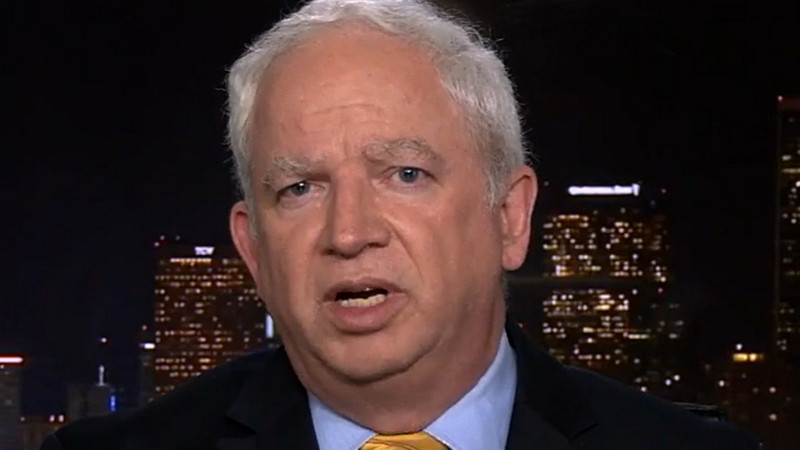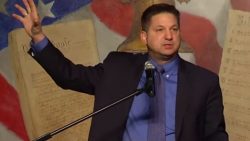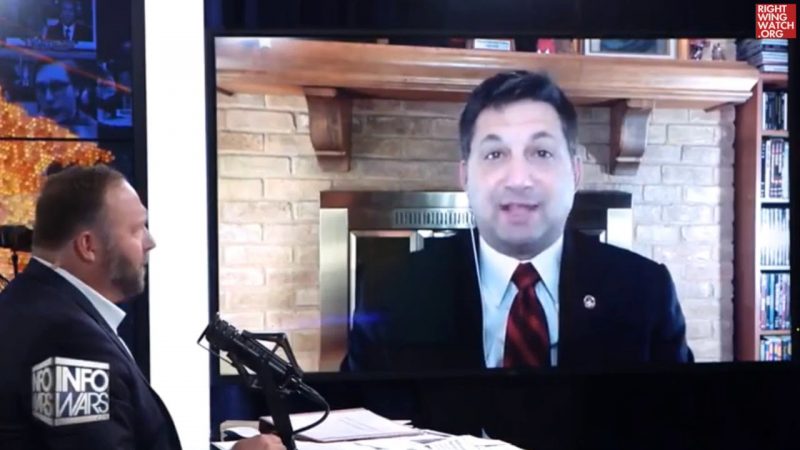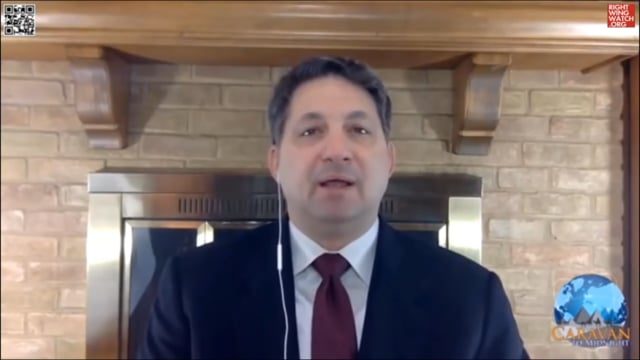John Eastman, a well-connected right-wing lawyer and anti-LGBTQ activist, published a column on Newsweek Wednesday questioning whether Kamala Harris meets the constitutional requirement to be vice president. As Right Wing Watch reported in a 2016 profile, law professor Eastman has a long record of activism on behalf of right-wing causes.
In his Newsweek op-ed, Eastman argued that even though Harris was born in Oakland, California, and her parents entered in the U.S. legally, she might not qualify as a natural-born U.S. citizen if her parents were not permanent residents at the time of Harris’ birth. Eastman’s constitutional interpretation is outside mainstream legal thinking; questions about Harris’s eligibility have been rejected by nonpartisan fact-checking sites and prominent conservatives. The column generated a wave of backlash on social media from critics calling Eastman’s argument racist.
Newsweek published an editor’s note late last night rejecting claims that Eastman’s column was racist. Editors Josh Hammer and Nancy Cooper stated:
Some of our readers have reacted strongly to the op-ed we published by Dr. John Eastman, assuming it to be an attempt to ignite a racist conspiracy theory around Kamala Harris’ candidacy. Dr. Eastman was focusing on a long-standing, somewhat arcane legal debate about the precise meaning of the phrase “subject to the jurisdiction thereof” in the Citizenship Clause of the 14th Amendment. His essay has no connection whatsoever to co-called “birther-ism,” the racist 2008 conspiracy theory aimed at delegitimizing then-candidate Barack Obama by claiming, baselessly, that he was born not in Hawaii but in Kenya. We share our readers’ revulsion at those vile lies.
Eastman has been one of the most vocal advocates for eliminating the 14th Amendment’s protection of birthright citizenship. He has argued that it would not take a constitutional amendment, just a court decision or act of Congress to change what he believes to be an erroneous interpretation of the 14th Amendment. These ideas put him on the fringes of the right-wing legal movement.
Citizenship and immigration are not the only issues on which Eastman pushes hard-right positions.
Eastman chairs the board of the anti-LGBTQ-equality National Organization for Marriage and has called homosexuality an indicator of “barbarism.” He described the Supreme Court’s 2003 Lawrence ruling, which overturned state laws criminalizing consensual gay sex, as a “despotic” decision. He attacked the 2015 marriage equality ruling as “illegitimate” and encouraged state officials to resist it. Eastman even supported Uganda’s notorious Anti-Homosexuality Act, which would impose life imprisonment in some cases. He has aligned himself with anti-equality and anti-choice efforts globally, speaking at the World Congress of Families summit in 2019.
At a Senate hearing convened by Sen. Ted Cruz after the marriage equality ruling in 2015, Eastman argued that a simple majority of states should be allowed to override “egregiously wrong” Supreme Court decisions. He urged Congress to advance some of his proposals to restrict the court before citizens’ patience “runs out” and they assert the right expressed in the Declaration of Independence to abolish the government that is oppressing them.
Eastman’s support for the Supreme Court’s infamous 1905 Lochner decision—which ushered in an era in which the court rejected economic and labor regulations—puts him in opposition to the late Antonin Scalia, who opposed the Lochner ruling.
Eastman has also taken a fringe position—one taken by Supreme Court Justice Clarence Thomas, for whom Eastman clerked—that the First Amendment’s ban on the establishment of religion does not apply to the states, and has argued that a state taxing people to support an official church, as some states did early in the nation’s history, was not all that coercive.
Harris and Eastman do have something in common. Both were candidates in the 2010 election for attorney general in California. Harris won, while Eastman was defeated in the Republican primary.








